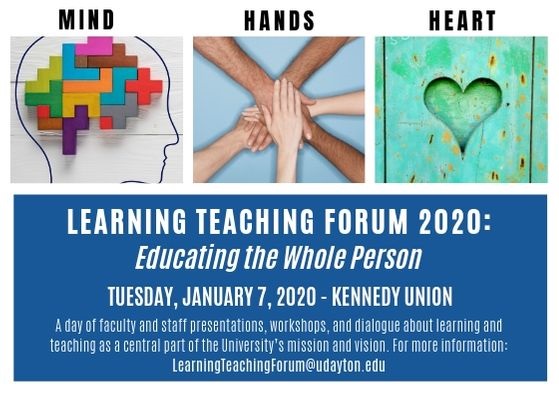Gender, Intersectionality and Representation: Advancing Student Learning through Data Reporting
About the Presenter(s)
Lisa J. Borello, director, Women's Center Mary McLoughlin, undergraduate research assistant, Women's Center Josh Segalewitz, undergraduate research assistant, Women's Center
Location
Gender, Intersectionality, and Inclusivity
Start Date
7-1-2020 1:40 PM
Abstract/Description
Kennedy Union 312
This session focuses on the conceptualization and development of the inaugural Status of Women at the University of Dayton Report Card. Created by professional and student staff in the Women’s Center, the report card utilizes institutional data to track the representation of women across the UD workforce. While the project focuses on staff and faculty, it also serves as a powerful experiential learning opportunity for undergraduate student research assistants who were challenged with researching, designing and executing this project over the course of a year. In the process, students deepened their understanding of university life, developed new skills outside the classroom, and applied them to meet an institutional need. In exploring the intersections of identity and gendered differences in leadership attainment, the project team also sought to utilize data to advance the Marianist mission of the university. This session also explores lessons learned and future possibilities for the report card.
Goals for Attendees
Attendees will learn new strategies for incorporating experiential learning into projects and programs. Attendees will also gain perspective on how institutional problems can provide opportunities to create holistic learning opportunities for students.
Gender, Intersectionality and Representation: Advancing Student Learning through Data Reporting
Gender, Intersectionality, and Inclusivity
Kennedy Union 312
This session focuses on the conceptualization and development of the inaugural Status of Women at the University of Dayton Report Card. Created by professional and student staff in the Women’s Center, the report card utilizes institutional data to track the representation of women across the UD workforce. While the project focuses on staff and faculty, it also serves as a powerful experiential learning opportunity for undergraduate student research assistants who were challenged with researching, designing and executing this project over the course of a year. In the process, students deepened their understanding of university life, developed new skills outside the classroom, and applied them to meet an institutional need. In exploring the intersections of identity and gendered differences in leadership attainment, the project team also sought to utilize data to advance the Marianist mission of the university. This session also explores lessons learned and future possibilities for the report card.




Comments
Keywords:
Experiential learning; data; gender; intersectionality; representation; leadership; diversity; equity